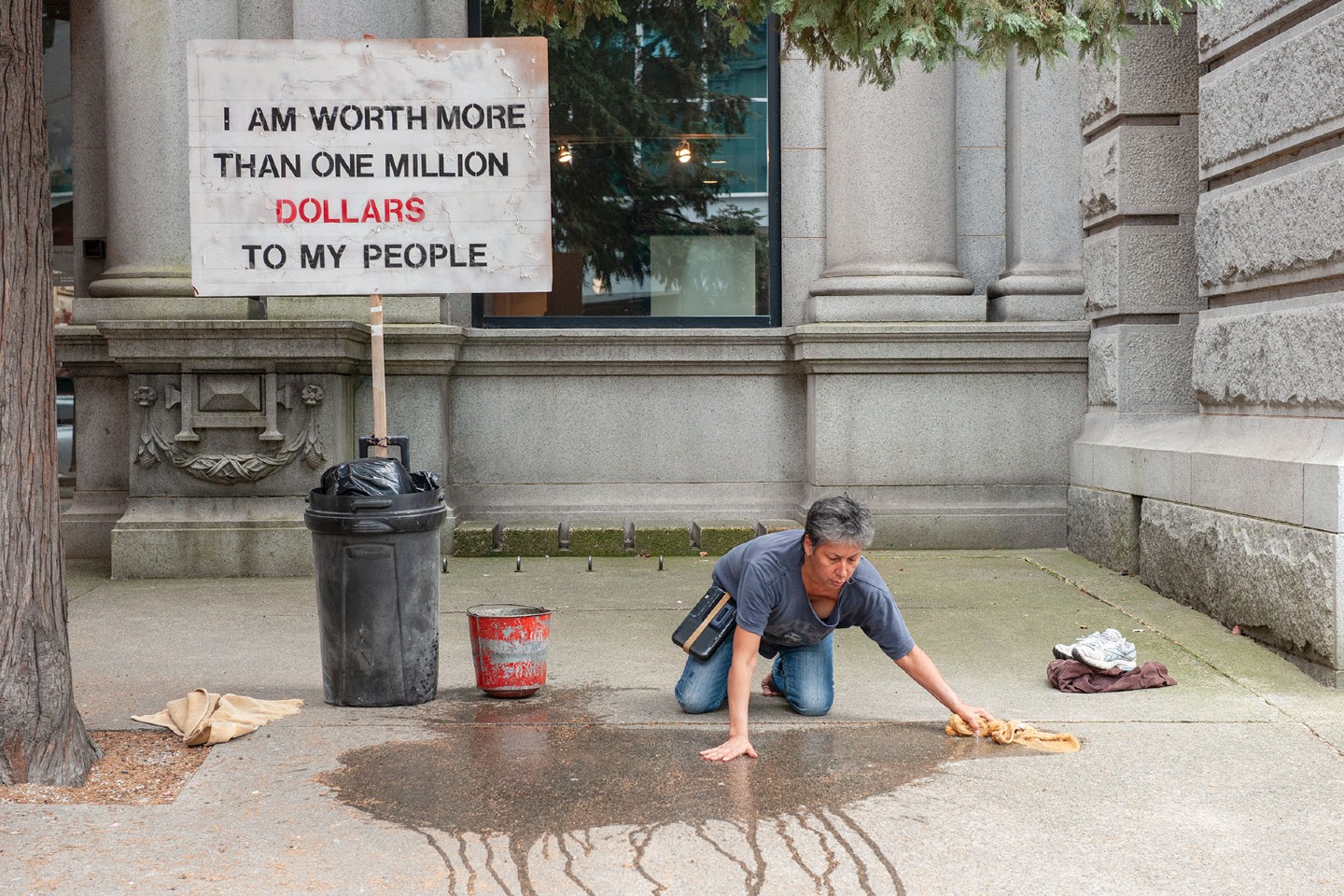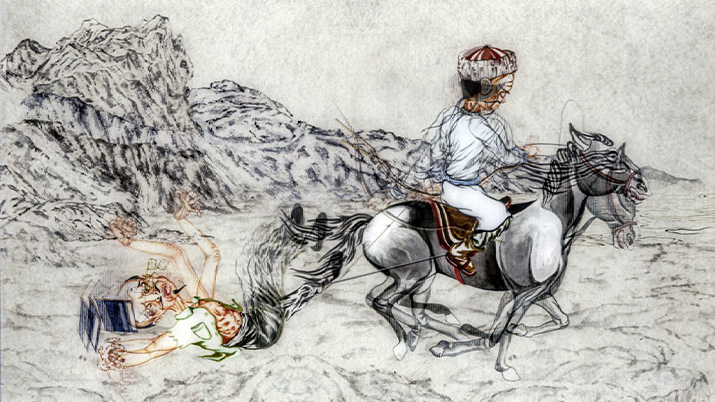Art That Makes You Uncomfortable
An artist talk as part of the Distinguished Visiting Artist Program
This event is free and open to the public. Please join us for a reception following the talk.
Please contact the AHVA Visual Resources Centre for access to the event recording: ahva.vrc@ubc.ca.
Artist Yoshiko Shimada is a proponent of feminist art in Japan. In this talk, Shimada presents a selection of her artworks that reflect on cultural memory and the role of women in the Asia-Pacific War, such as Past Imperfect (1991–1997) that examines Japanese women’s roles during the war, Made in Occupied Japan (1998–2000) that looks at military bases as sites for sex, violence, and power; Women in Camouflage (2002) that documents the daily lives of female soldiers in the military; and Becoming a Statue of a Japanese Comfort Woman (2012–ongoing) that responds to historical erasure through performance. In exploring legacies of war, violence, and occupation, Shimada proposes a practice of feminism and art-making as a tool for self-examination, and a means to complicate the victim versus oppressor divide.
Yoshiko Shimada (嶋田美子, b. 1959, Tokyo) lives and works in Chiba, Japan. She graduated from Scripps College, USA, in 1982, and received her PhD from Kingston University, London, in 2015. Her artwork explores themes of cultural memory and the role of women in the Asia-Pacific War. Her works have been exhibited both nationally and internationally. In recent years, Shimada has been researching post-1968 art and politics in Japan. She has curated exhibitions, such as Anti-Academy (John Hansard Gallery, 2013), Nakajima Yoshio Syndrome (Atsukobarouh, 2015), and From Nirvana to Catastrophe (Ota Fine Arts, 2017), for which she wrote and edited the catalogues. She lectures on Japanese art and politics of the 1960s and 70s, and art and feminisms in Japan at The University of Tokyo.
The Distinguished Visiting Artist Program is made possible by the generous support of the Rennie Collection.

